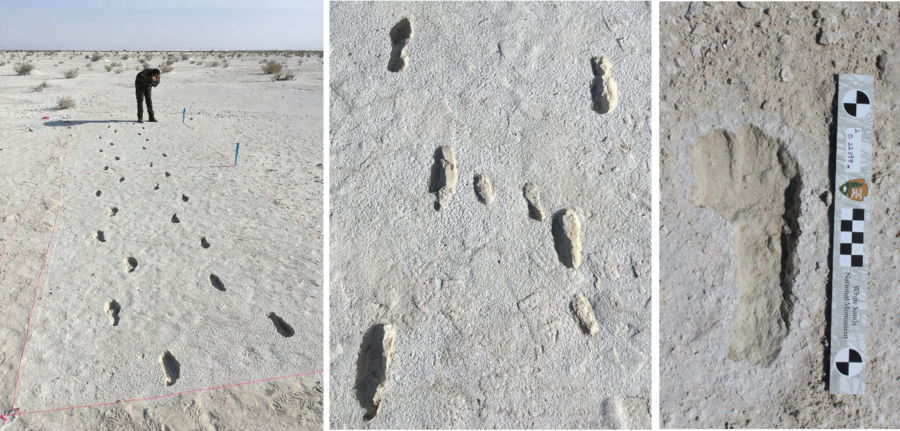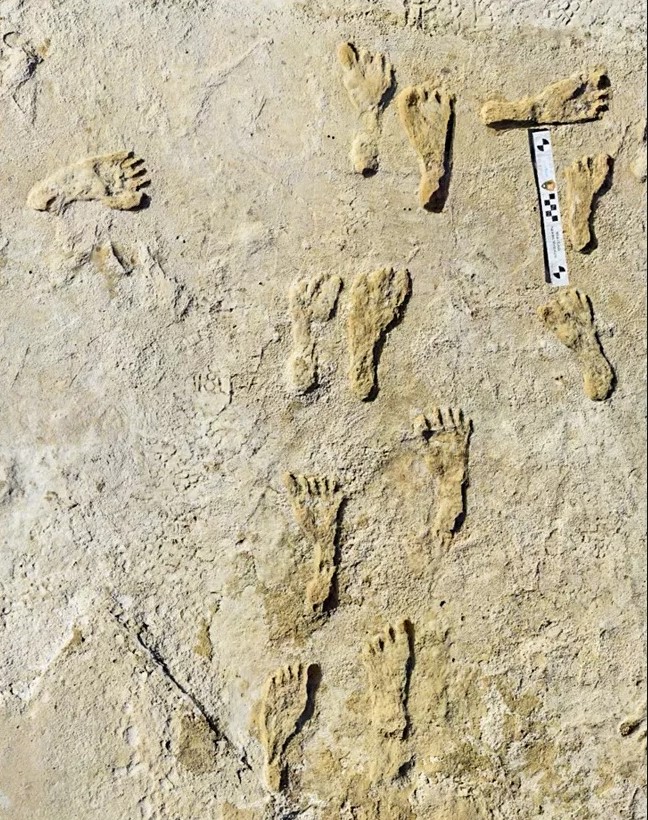
On its website, the National Park Service (NPS) posts this combined photo about the White Sands National Park, New Mexico, saying that "White Sands has the largest collection of fossilized human footprints." (Credit: NPS)
If the new findings are confirmed, archaeologists will have to reconsider the routes people may have taken into the continent and where to look for traces of its earliest inhabitants.
HOUSTON, Oct. 5 (Xinhua) -- Fossil human footprints discovered in the U.S. state of New Mexico are likely the oldest direct evidence of human presence in the Americas, according to a study published on Thursday in the journal Science.
The footprints at the edge of an ancient lakebed in the White Sands National Park, New Mexico, are estimated to date back between 21,000 and 23,000 years ago during the height of the Last Ice Age, said the study. The earliest widely accepted dates for human presence in the Americas are around 16,000 years old.
Radiocarbon dating, which relies on seeds from an underwater grass plant called Ruppia cirrhosa to serve as markers from different time periods, was first reported in Science in 2021 and has been questioned in the academic circle. Several scientists warned that the parent plants could have absorbed ancient carbon-14 from the lake and produced results that skewed far too old.

On its website, the National Park Service (NPS) posts this photo about the White Sands National Park, New Mexico, saying that "White Sands has the largest collection of fossilized human footprints." (Credit: NPS)
The latest study now says that besides the radiocarbon dating method, new work with two additional dating techniques confirms the great antiquity of the footprints.
Ages from these methods "are statistically indistinguishable from our original seed ages," said the study's co-author Jeffrey Pigati, a geologist at the United States Geological Survey.
However, some skeptics say they still want more evidence for this extraordinary claim.
If the new findings are confirmed, archaeologists will have to reconsider the routes people may have taken into the continent and where to look for traces of its earliest inhabitants. ■












